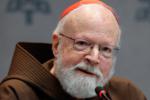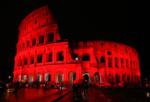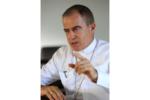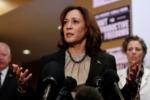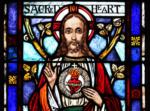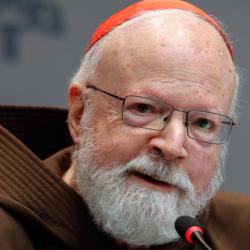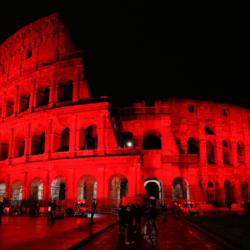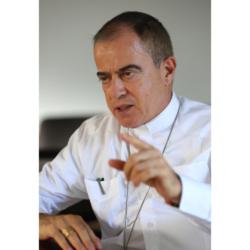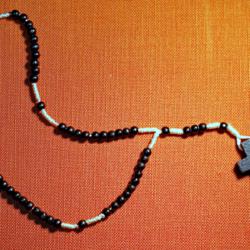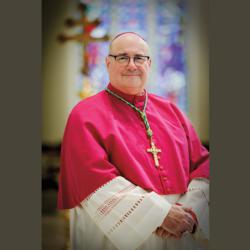Borders should be points of contact, not separation, pope says in Hungary
BUDAPEST, Hungary (CNS) -- To be Christian is to be open and welcoming to others, Pope Francis said as he celebrated Mass outside Hungary's Parliament building.
"We, like Jesus, must become open doors. How sad and painful it is to see closed doors," especially the "closed doors of our selfishness," isolationism and indifference to the poor and the sick, he said at the Mass April 30 in Budapest's Kossuth Lajos Square.
In a country that has assisted hundreds of thousands of Ukrainians fleeing war but otherwise maintains a "no migrants" policy, the pope decried "the doors we close toward those who are foreign or unlike us, toward migrants or the poor."
Hungarian Prime Minister Viktor Orbán and President Katalin Novák, who have promoted the migration restrictions, were among the estimated 50,000 people attending the Mass.
Akos Ugron, wearing his Malteser International jacket over his Scout leader's uniform, said the Mass was exactly what he had hoped for from Pope Francis' visit -- "that we would be all together. Many have come from the far parts of the country."
Like his fellow Hungarian volunteers with the Knights of Malta's humanitarian organization, he has assisted Ukrainians crossing the border. He said, though, he agrees with the government that migrants must enter the country only legally.
Pope Francis returned to the topic of borders and welcome at the end of Mass before leading the recitation of the "Regina Coeli" prayer.
Cardinal Peter Erdo of Esztergom-Budapest had described Hungary as being "the eastern border of Western Christianity for a thousand years."
Pope Francis commented, "It is a beautiful thing when borders do not represent boundaries that separate, but points of contact, and when believers in Christ emphasize first the charity that unites us, rather than the historical, cultural and religious differences that divide us."
Before leading the Marian prayer, he told people in the square he wanted to entrust to Mary "the faith and the future of the entire continent of Europe, which has been on my mind in these days and, in particular, the cause of peace."
"Blessed Virgin," he prayed, "watch over the people who suffer so greatly. In a special way, watch over the neighboring, beleaguered Ukrainian people and the Russian people, both consecrated to you."
"Instill in the hearts of peoples and their leaders the desire to build peace and to give the younger generations a future of hope, not war," the pope prayed, "a future full of cradles not tombs, a world of brothers and sisters, not walls and barricades."
In his homily at the Mass, Pope Francis focused on the Gospel reading, John 10:1-10, where Jesus describes himself as a shepherd who calls his sheep by name and as the gate for the sheep.
Jesus brings people into the fold, the community, the church, the pope said, and then he sends them out.
"We too were first gathered into God's family to become his people," he said, "then we too were sent out into the world so that, courageously and fearlessly, we might become heralds of the good news, witnesses of the love that has given us new birth."
Jesus is an open door, the pope said, welcoming people into the community and sending them out again in his name.
Pope Francis said he is saddened to see "closed doors also within our ecclesial communities: doors closed to other people, closed to the world, closed to those who are 'irregular,' closed to those who long for God's forgiveness."
"Please," he told Hungarian Catholics, "let us open those doors! Let us try to be -- in our words, deeds and daily activities -- like Jesus, an open door: a door that is never shut in anyone's face, a door that enables everyone to enter and experience the beauty of the Lord's love and forgiveness."
Saying he was speaking particularly to himself and to his fellow bishops and priests, Pope Francis said they must be good shepherds like Jesus, who "does not take advantage of his role; he does not lord it over the flock entrusted to his care; he does not occupy spaces that belong to his lay brothers and sisters; he does not exercise inflexible authority."
The call extends to "those with political and social responsibilities," he said. "Be open and inclusive, then, and in this way, help Hungary to grow in fraternity, which is the path of peace."



